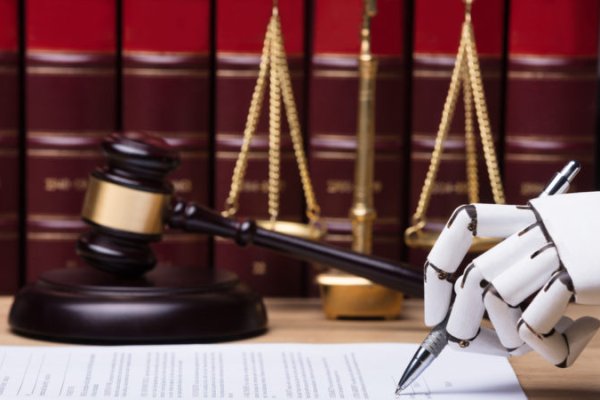Published on the 05/02/2020 | Written by Heather Wright

They may not have the crisp turn of phrase or persuasive argument, but bots are taking on legal – and winning…
What do you get when you mix lawyers with chatbots? Well, lawbots, of course. And according to Gartner, they’re one of the next big things.
In fact, the analyst firm is forecasting virtual legal assistants, aka lawbots, to handle a quarter of all internal legal requests come 2023 as ‘intense’ pressure on legal departments to increase their responsiveness and efficiency sees them turn to automation, artificial intelligence, machine learning and natural language processing to take some of that pressure off staff.
Zack Hutto, director in the Gartner legal and compliance practice admits it sounds like hype, but says the use of virtual legal assistants, legal chatbots and lawbots can provide significantly benefits and will significantly disrupt the legal technology marketplace.
“Legal departments will shift their talent acquisition and retention strategies to address the need for dedicated legal technology experts.”
Powered by AI, the little assistants can quickly comb through reams of legal text to find the information relevant to the case or request at hand, and provide insights and advice.
“Virtual legal assistants can help legal departments improve efficiency by streamlining matter intake, triaging legal requests, determining the necessity of legal review and automating routine legal workflow,” Gartner says.
There’s also another benefit: Providing a level of anonymity in situations where employees might perceive a risk in simply asking for information – think whistleblowing or harassment claims.
“Legal departments will benefit through increased efficiency gains, improved employee satisfaction, and from more opportunities to re-task legal experts to higher value activities,” says Hutto “These sought-after benefits will open up the market to new entrants who can provide self-service applications with AI and conversational interfaces.”
Automation and bots have been making inroads into legal, with Gartner noting that legal bots are demonstrating value and versatility in citizen and consumer law.
Case Crunch, a bot created by four Cambridge law students, started out as a bot answering simple legal questions before developing into a program to predict the outcome of cases. In 2017, it won the first ever AI vs Lawyers competition, predicting case outcomes with 86.6 percent accuracy, versus lawyers’ 62.3 percent accuracy.
The team behind Case Crunch have gone on to develop several legal chatbots providing criminal law guidance and divorce guidance in the UK.
US offering DoNotPay dispenses legal advice on fines, while Rocket Lawyer provides legal documentation and attorney advice, including pulling data from documents to help assemble legal documents.
(As an aside, Gartner has also said it believes virtual legal advisors ‘are poised to surpass the potential of chatbots’.)
Closer to home, New Zealand’s McCarthyFinch – a collaboration between law firm MinterEllisonRuddWatts and Goat Ventures – is helping automate legal work for in-house legal teams and law firms.
Hutto says the consumerisation of chatbots across wider society – with Gartner forecasting that by 2022, 70 percent of white-collar workers will be interacting with conversational platforms on a daily basis – is reinforcing the trend towards virtual legal assistants.
Platforms such as Amazon Lex, IBM Watson and Slack meanwhile are enabling legal-focused vendors and services providers to quickly jump into the fray without having to develop a core technology or infrastructure backbone.
The move to automation might help free up legal staff, but it will also create a new role in many companies, with Gartner also forecasting that 33 percent of corporate legal departments will have a dedicated legal technology expert to support the increasing automation, by 2023.
“While standardised, repeatable legal workflows have great potential for automation, existing in-house counsel may not have the technology leadership needed to support these initiatives,” Gartner says.
“As core in-house legal work becomes increasingly reliant on technology, legal departments will shift their talent acquisition and retention strategies to address the need for dedicated legal technology experts.”
That increased focus on technology, also brings with it an increase in tech spend: 40 percent of corporate legal departments intend to increase spending on legal IT systems or software by 10 percent or more in the next three years, according to Gartner.
Objection your honour!
But, as with any bot offering – or indeed any technology rollout – get it wrong and there will be consequences.
“Poor lawbot solutions might create an even greater burden on legal departments,” Hutto says. “At a minimum, lawyers could have to handle manual rework, and at worst they may have to work to repair relationships with put-off internal clients.”



























